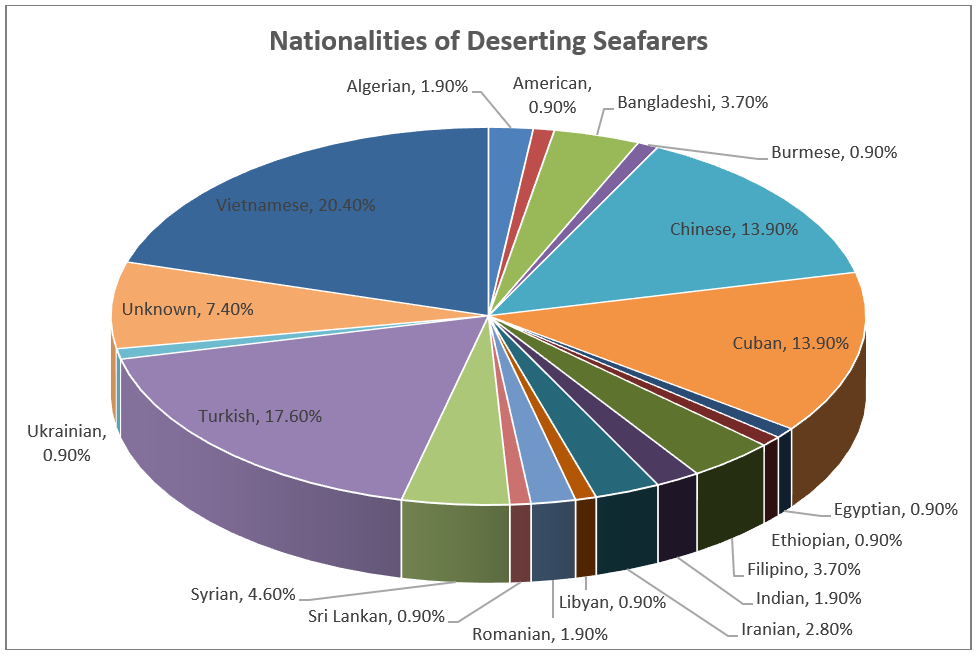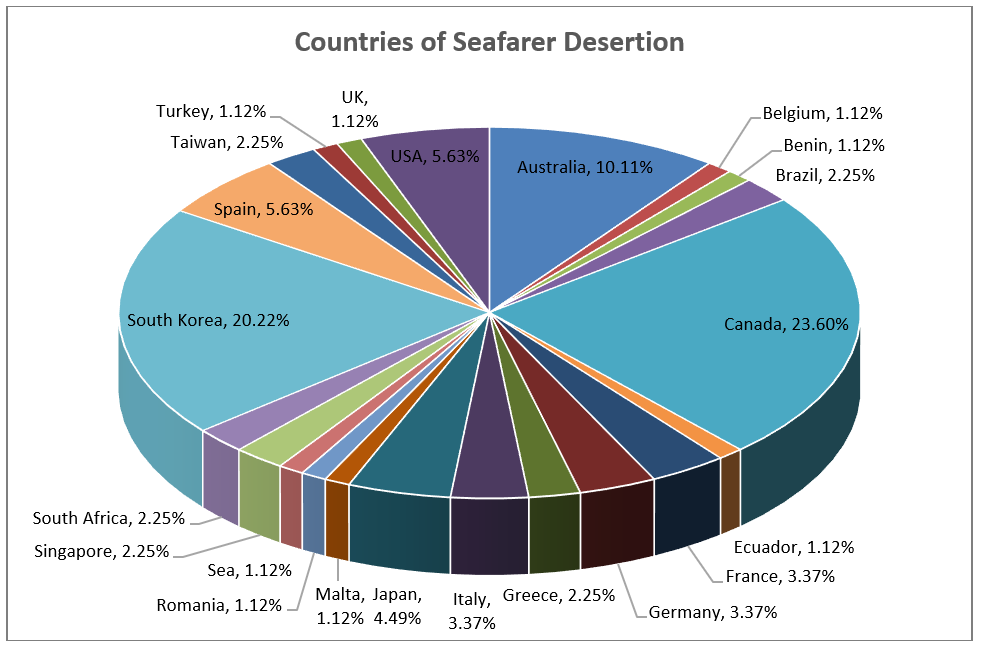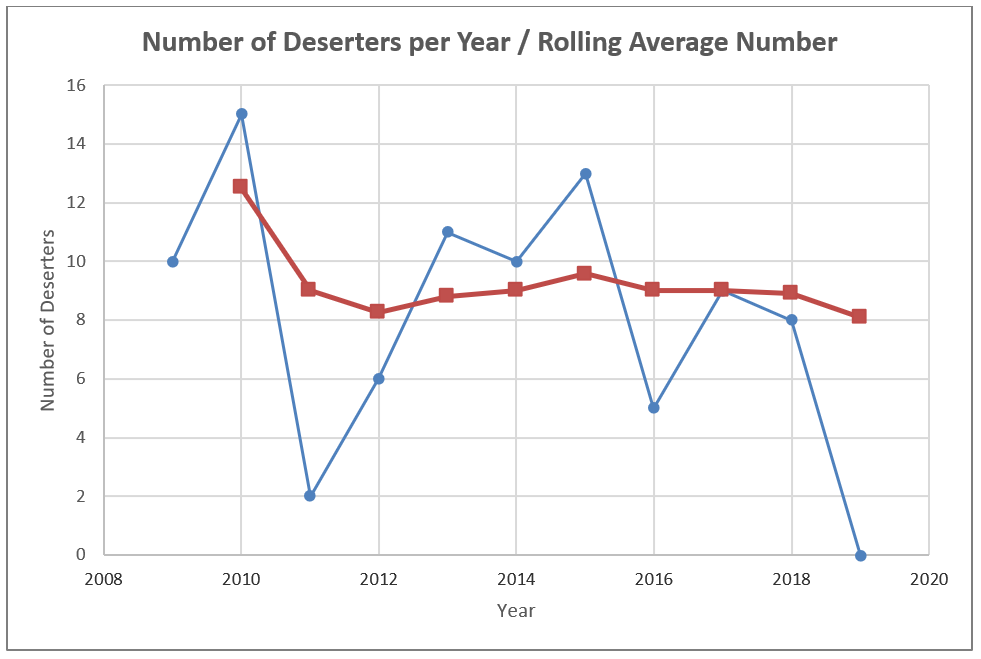The West of England Club conducted an analysis on claims involving seafarers who have deserted their vessel, concerning the past ten years. Although these claims are not common and are not much of an expense to shipping companies, they can disrupt the operation of a vessel and take up management time to rectify. Sometimes, the deserter returns shortly, and other times they disappear for a considerable period of time.
Mainly, those who desert a vessel vary, from being cadets, to crew and officers from all departments. The only discernible pattern is that catering staff, chief cooks, cooks, stewards and messboys predominate over other departments in the Club’s statistics, with chief cooks and cooks in particular featuring regularly in deserter cases.
The Club suggests that it is impossible to be exactly sure of the pattern of the nationalities that are most likely to desert an entered vessel, based on a review, Vietnamese, Turkish, Chinese and Cuban seafarers are predominate.

Moreover, certain countries do preponderate in relation to where they experience desertion cases, with Canada, South Korea and Australia being popular destinations, followed by the USA and Spain. There are also a handful of trends in relation to which nationality of seafarers predominate in desertion cases in certain countries:
- Chinese and Vietnamese seafarers deserting in Australia;
- Turkish and Cuban seafarers deserting in Canada;
- Chinese and Vietnamese seafarers deserting in South Korea.

Although the number of such cases experienced in a given year can vary considerably, the overall trend when correlated to the growth of the Club’s entered tonnage during the period, is slowly downwards:

In addition, many are the reasons and the circumstances surrounding desertion. For instance:
- An oiler claimed he required medical attention whilst the vessel was alongside in Canada. Arrangements were made to take the seafarer to the doctors but once ashore he disappeared. A few days later a second seafarer demanded to be repatriated with full pay, otherwise he threated that he too would disappear. He was escorted to the airport by security guards until he was under the care of the airline, at which stage he claimed asylum.
- An AB due to be repatriated at the end of his trip from a port in Greece requested to visit the bathroom prior to being driven to the airport. He never returned from the bathroom, and although his colleagues searched for him, they found no trace.
- An AB requested an USD 800 cash advance and his passport from the Master so that he could transfer money home when ashore in the USA, but he never returned to the ship.
- In a South Korean port, the cook was denied a shore pass by the authorities as he had illegally entered the country previously. When his crewmates were sleeping, he stole the shore pass of a colleague and disappeared ashore.
- In Canada five crew were being repatriated at the end of their trip. The cook checked-in first for their flight home and then declared he was going outside the terminal building to smoke. He never arrived at the gate to board the plane.
- In an Australian port, three deck crew packed up their belongings and surreptitiously left the ship. They were eventually arrested by the local authorities and deported to Turkey.






























































